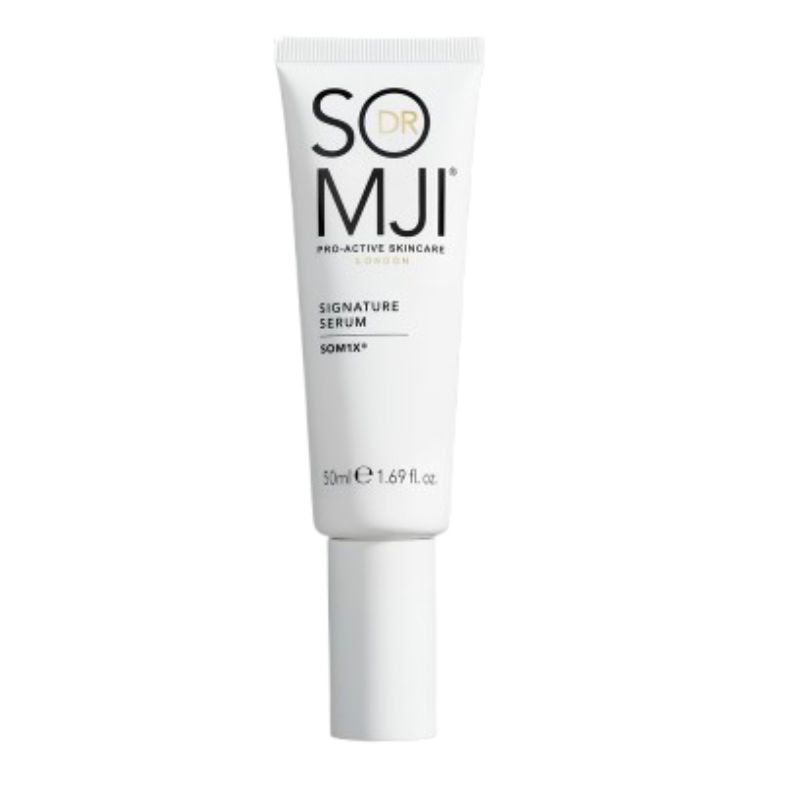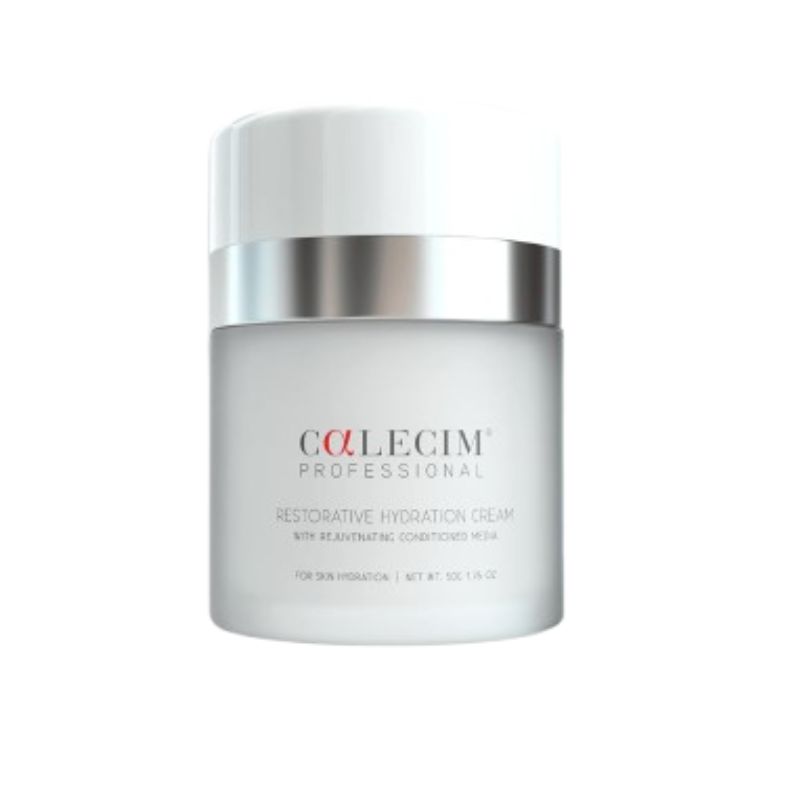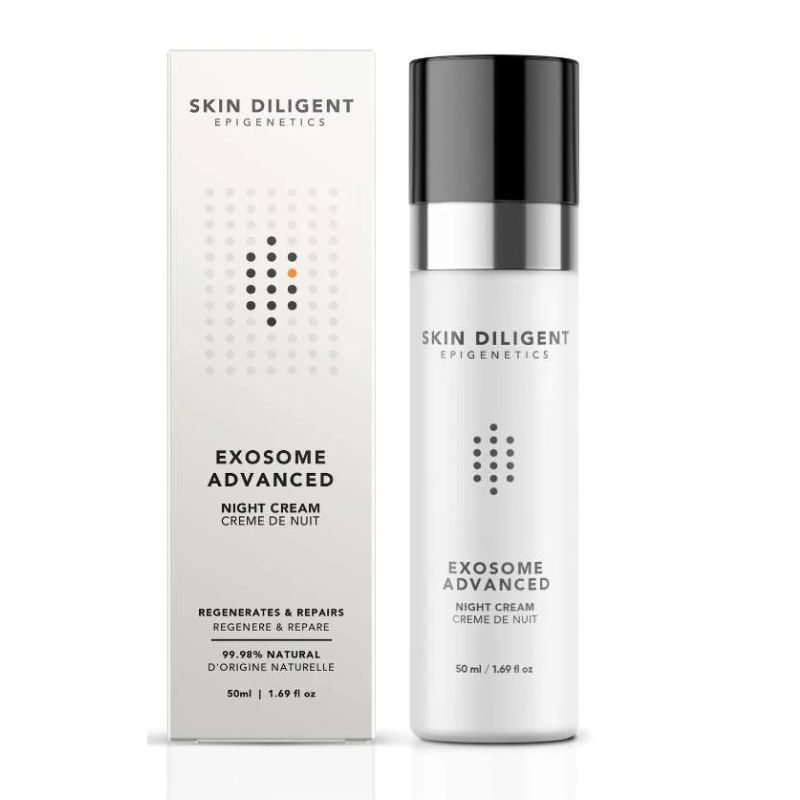Exosomes are like a skincare 'postal service,' delivering rejuvenation and reduced redness
Intrigued? The experts explain why exosome skincare is set to be one of the year's biggest trends


Is it just us, or has skincare gotten a bit too fast and furious lately? We graduated from cleanse, tone, moisturise into the wonderful world of best retinol creams and chemical exfoliants, and now every launch promises more ingredients, higher concentrations and faster results.
We could do with taking a minute to calm down. More is rarely more when it comes to skincare, and the more pressure we put our skin under by exposing it to product after product, the more irritable and sensitive it will become. The good news is that exosomes are the antidote to all this drama. They focus on improving your skin (or what’s the point?), but the emphasis is on repairing and restoring.
The science behind exosomes isn’t straightforward, but we’ve enlisted the help of Dr Anjali Mahto, consultant dermatologist and founder of the Self London clinic, plus aesthetic doctor Dr Sophie Shotter, to make it as easy to understand as possible.
Exosomes in skincare - explained by skin experts
“When applied to the skin via skincare products or in-clinic treatments, exosomes can enhance cell turnover, improve collagen synthesis and reduce inflammation,” explains Dr Mahto. “They’re highly effective at skin rejuvenation, wound healing and calming irritation.” Happier, healthier, younger-looking skin, what more could we ask for?
What are exosomes?
Let’s start with the basics. “Exosomes are tiny particles released by cells in your body that act like messengers,” explains Dr Mahto. “They can contain proteins, lipids, growth factors, fragments of DNA and many other things which allow the cells to talk to one another,” furthers Dr Shotter.
The benefit of using exosomes in both skincare and treatments, according to Dr Mahto, is that they can be used to “boost healing, reduce redness and improve the overall look and feel of the skin.”
Confusingly, exosomes in skincare are “not actually an ingredient”, says Dr Shotter. They’re a delivery mechanism, so they can transport the ingredients, but aren’t an ingredient in their own right.”
Sign up to our free daily email for the latest royal and entertainment news, interesting opinion, expert advice on styling and beauty trends, and no-nonsense guides to the health and wellness questions you want answered.
How do exosomes in skincare work?
As we have just touched on, “exosomes work by delivering signalling molecules to target cells, essentially instructing these cells to regenerate or repair damaged tissue,” says Dr Mahto.
Think of exosomes as a postal service for your skin. They carry things from A to B and allow your cells to communicate, just as your postman delivers messages to you in letter or parcel form.
But, just as your postman doesn’t open your post for you (that would be odd), the exosomes aren’t doing anything with their contents; they’re just responsible for carrying these components to where they need to be. “It’s the elements inside the exosomes which have the effect, rather than the exosome itself,” explains Dr Shotter.
Who should be using exosomes?
As with all ingredients, exosomes are only worth including in your skincare routine if you have the skin concerns that they’re capable of targeting. “Exosomes are particularly beneficial for skin showing signs of ageing, such as loss of firmness, fine lines, and wrinkles,” advises Dr Mahto.
“They are also effective for redness, inflammation, and post-procedure recovery due to their calming and regenerative properties. Individuals with dull, dehydrated, or environmentally damaged skin can also benefit, as exosomes enhance hydration, improve texture, and repair damage at the cellular level.” In short, you will see the most impressive results from exosomes in skincare if your skin is mature, irritated or dehydrated.
Unlike something like retinol, which speeds up the rate at which our skin cells turnover, or vitamin C serums, which can be highly acidic, exosomes aren’t likely to cause irritation, which makes them suitable for most skin types.
“Exosomes are generally safe for all skin types, including sensitive skin,” continues Dr Mahto. “However, individuals with active infections, open wounds, or severe skin conditions such as uncontrolled eczema or psoriasis should consult a dermatologist before use.”
How to use exosomes in skincare
As they’re relatively new to the scene at the moment, it’s only niche, more expensive skincare brands that are working with this ingredient.
If cost isn’t an issue and you do want to splash out on a fancy exosome serum to use at home, it’s relatively easy to incorporate into your routine. “Exosomes pair well with hydrating and barrier-strengthening ingredients, such as hyaluronic acid, ceramides, and niacinamide, which complement their regenerative effects,” advises Dr Mahto.
“They are also highly effective when used alongside antioxidants like vitamin C, which enhance their ability to protect against oxidative stress. However, it’s best to avoid combining exosomes with highly sensitising or aggressive actives, such as strong acids or retinoids, without professional guidance, as these could counteract their calming and reparative properties.”
Aesthetic practitioners and dermatologists are also using exosomes to reduce downtime and supercharge healing with more invasive skin tweakments. “I particularly like to use exosomes in conjunction with in-clinic treatments like radio frequency microneedling or microneedling, where the skin barrier has been breached and the skin needs to heal,” says Dr Shotter.
The exosomes can help to expedite healthy healing, as well as amplify the results of the treatment itself. There are now various home-use products available, but often they are at lower potency than in clinic treatments.”
3 exosome skincare buys we love
Are exosomes better than retinol and peptides?
Your skin type, as well as how reactive your complexion is, will have an impact when comparing peptides vs retinol, and either vs exosomes. It’s a bit like rating biscuits – a rich tea will take one person’s top spot, while someone else's will be a chocolate Hobnob. Two very different biscuits, both delicious in their own way.
Retinoids, for example, work by speeding up the rate at which our cells turnover, kickstarting the production of collagen and elastin, which dwindle as we age, in the process. They pack a punch, with the potential for amazing results, but also flaking or redness, depending on the type used or the health of your skin.
In this case, it’s retinoids themselves that are doing the work, and this is different to exosomes, which are carrying components between cells rather than having a direct impact on our skin.
Exosomes and peptides are a little more similar. “They both facilitate communication between cells and stimulate repair processes,” explains Dr Mahto. “However, exosomes are more complex, carrying a broader range of signalling molecules such as proteins and lipids, that enable cellular responses. In contrast, peptides are simpler molecules that typically deliver one specific signal, such as promoting collagen production.”
Essentially, exosomes are slightly more advanced than peptides. “An exosome can contain the peptide, along with many other things,” says Dr Shotter. “They’re far more complex structures capable of transporting different things when compared to a peptide.”
Ultimately, there aren’t any winners or losers here, and it’s more about what your skin needs and responds well to, as well as your budget. Remember, exosomes are still incredibly expensive to formulate with, whereas retinoids and peptides are much more affordable.
Are there any side effects of exosomes?
All beauty products can pose a risk if they’re not used according to the instructions, but there are no particular side effects associated with exosomes. “In principle reactions can happen, but I haven’t seen any,” assures Dr Shotter.
Jess Beech is an experienced fashion and beauty editor, with more than eight years experience in the publishing industry. She has written for woman&home, GoodtoKnow, Now, Woman, Woman’s Weekly, Woman’s Own and Chat, and is a former Deputy Fashion & Beauty Editor at Future PLC. A beauty obsessive, Jess has tried everything from cryotherapy to chemical peels (minus the Samantha in Sex and The City-worthy redness) and interviewed experts including Jo Malone and Trinny Woodall.



